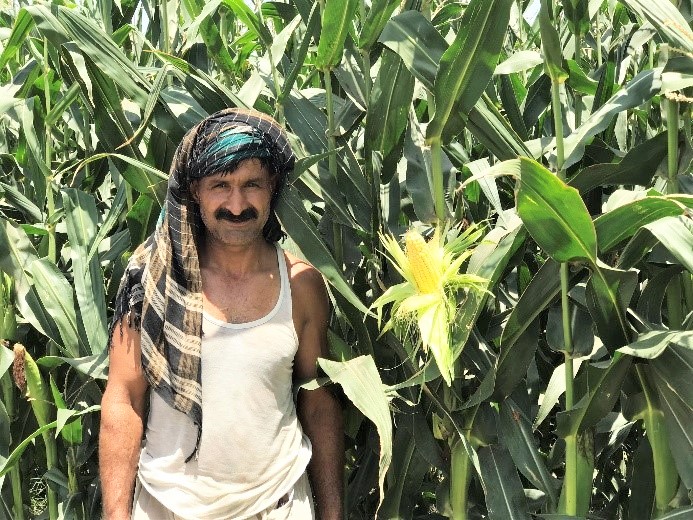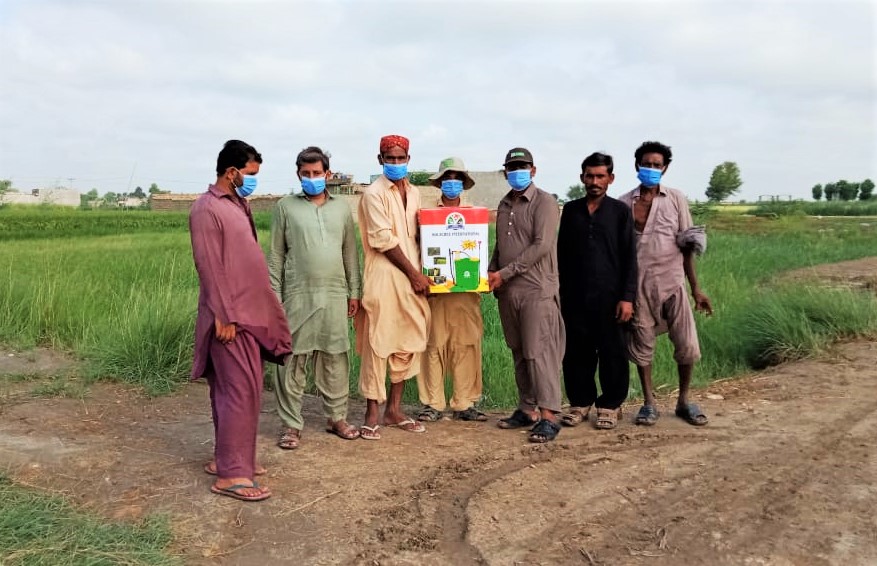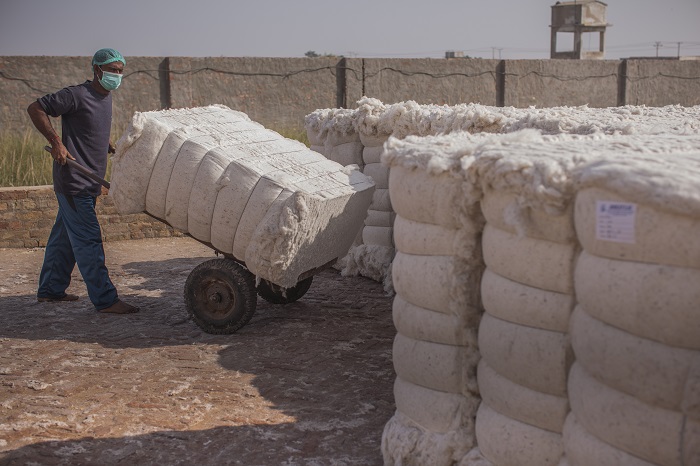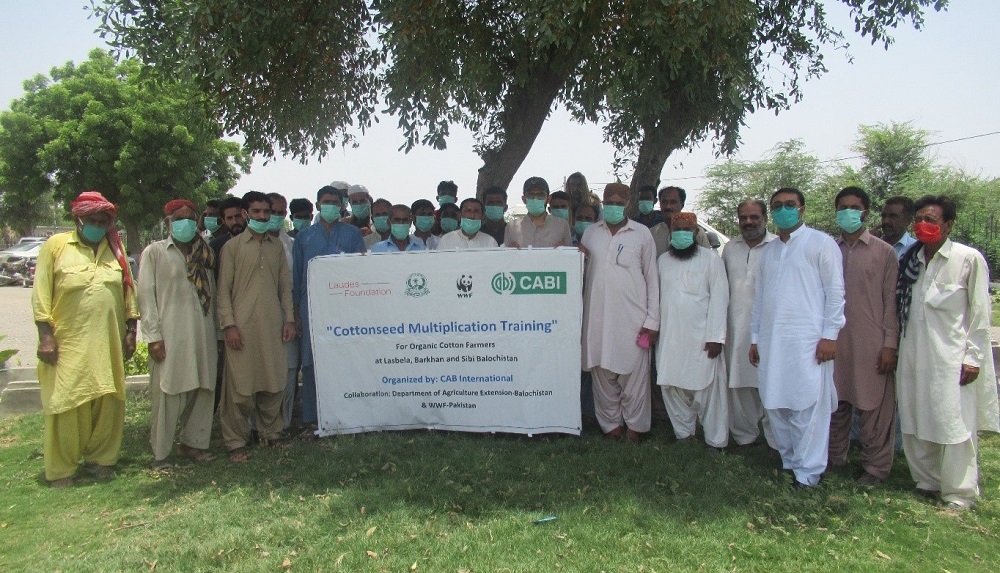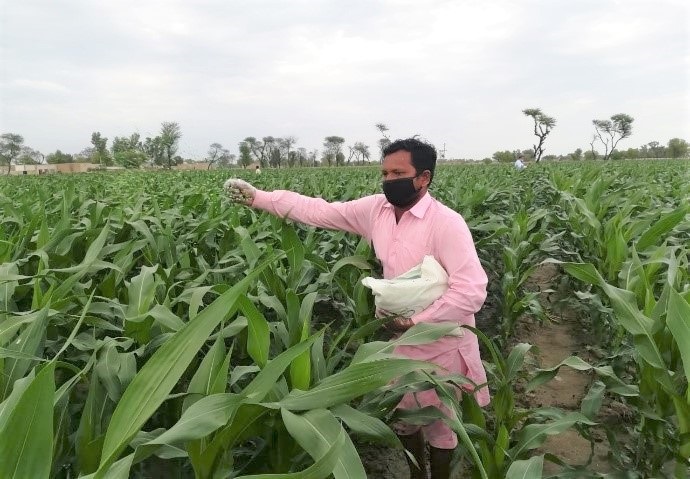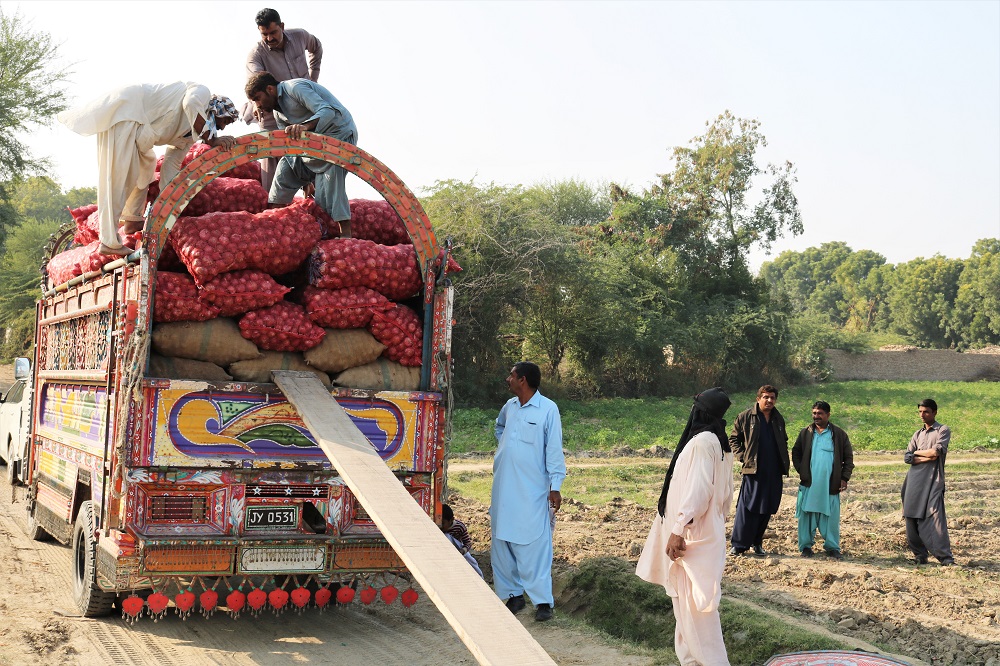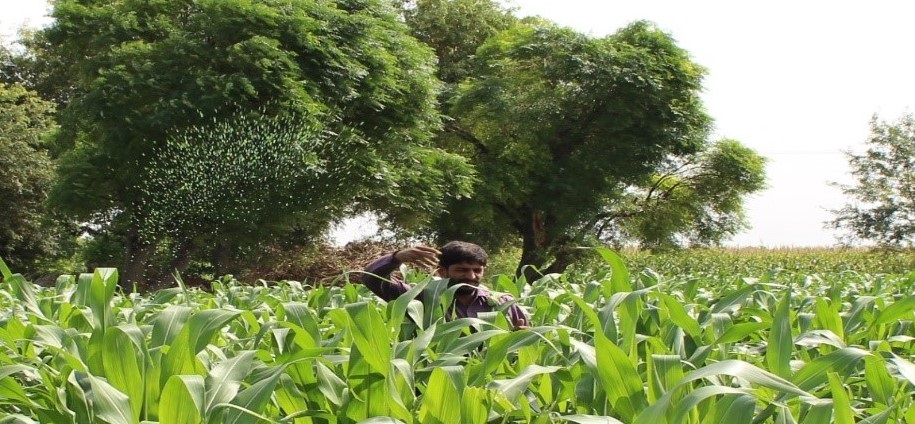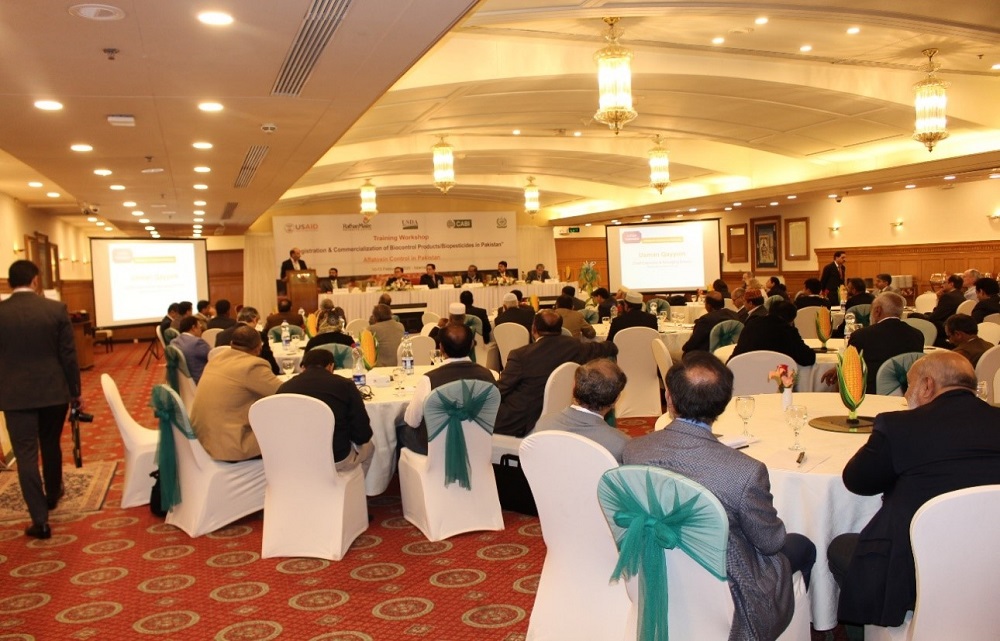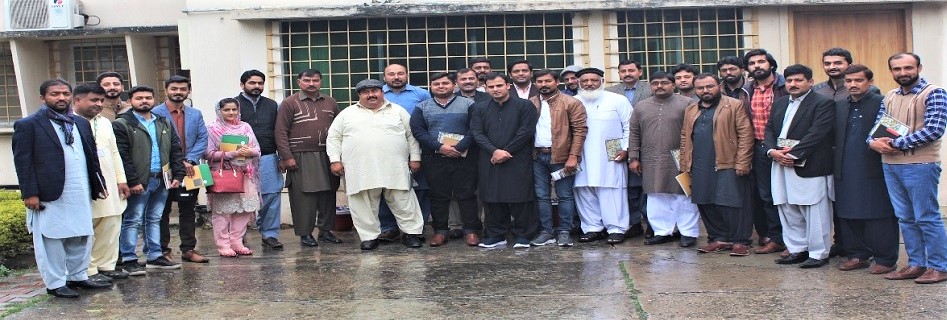CABI Blog
Tag: Pakistan
You are here: CABI Blog
CABI in Pakistan showcases its work on cotton as part of World Cotton Day
October 20, 2020
Babar Latif Baloch, Noreen Mangrio
No Comments
CABI in Pakistan took the opportunity to showcase its work on cotton, as part of a special World Cotton Day event hosted by the Central Cotton Research Institute (CCRI) in Multan, which included details on how it supporting more than 32,000 cotton farmers, 52,000 cotton farm workers and 500 agriculture extension workers through its projects.
Aflatoxin control in Pakistan: A project which will change landscape of country’s maize crop
October 5, 2020
Babar Bajwa, Sabyan Faris Honey
No Comments
Aflatoxin, produced by a poisonous fungus, is a serious threat to food security by contaminating many of Pakistan’s agricultural products, including cereal grains, chilies, dry fruits, nuts and milk.
The advantage of developing ‘linkages’ for Better Cotton Initiative in Sindh province, Pakistan
September 29, 2020
Umair Safdar
No Comments
In agriculture, cotton crop plays a vital role in the economy of Pakistan as the fourth biggest producer in the world behind China, India and the United States. But cotton yields and livelihoods are at risk from a range of pests such as Whitefly, Thrips, Cotton Mealybug, Pink Bollworm, and other sucking and chewing type…
Conservation of beneficial insects through NEFR installation in cotton crop
July 29, 2020
Ashfaque Ahmed Nahiyoon, Babar Latif Baloch
2 comments
Cotton crop is the main source to produce the fiber, cotton seed cake, and for animal feed to support an increase in milk production and oil in good quantities. The sticks of cotton crop also support in burning fires for cooking purpose in the rural areas of Pakistan in places where other resources are not…
Training of organic cotton farmers for seed multiplication
July 28, 2020
Ashfaque Ahmed Nahiyoon, Babar Latif Baloch
No Comments
Organic cotton refers to naturally cultivated cotton without the use of any synthetic agricultural chemicals, such as fertilizer or pesticides or transgenic technology, to secure sustainable, ecological and biodynamic agriculture. Organic cotton also promotes and enhances biodiversity and biological cycles and is beneficial to human health and the environment.
As a diamond cuts a diamond, ‘good fungus’ will reduce ‘bad fungus’ in maize crop
July 6, 2020
Sabyan Faris Honey
1 comment
CABI, along with its partners Rafhan Maize Products Co. Ltd and with the support of the National Agricultural Research Centre (CDRI, ASI), are busy evaluating the efficacy of AflaPak™ in Pakistan – a biological control agent/product for outcompeting the strains of aflatoxin producing Aspergillus flavus in maize.
Onion value chain interventions increase incomes for growers in Sindh province, Pakistan
June 30, 2020
Azeem Hayder, Muhammad Asif
2 comments
Mr Quraish and Mr Babar are both members of the Strengthening Vegetable Value Chains in Pakistan (SVVCP) onion farmer’s group, from the village Ibrahim Shah in district Tando Allahyar Sindh, who are keen on increasing their yields and sales of their produce.
AflaPak is on its way for maize growers to detain the toxic fungi in spring crop
April 27, 2020
Sabyan Faris Honey
1 comment
In Pakistan maize crop of the spring season is more likely to be contaminated with the exposure of aflatoxin due to the favourable conditions; temperature (75.2-109 °F) and of relative humidity (62-99%) during the crop life cycle. To minimize the level of aflatoxin each country/region has its own version of non-toxigenic strains growing naturally in…
AflaPak registration will pave the way to enhance the livelihoods of maize growers in Pakistan
March 31, 2020
Sabyan Faris Honey
No Comments
Pakistan has taken the regional lead to mitigate the aflatoxin issue in South Asia. USAID/USDA has joined hands with CAB I to lead this new initiative in collaboration with the National Agricultural Research Centre (NARC) and Rafhan Maize Products Co. Ltd. This will help to safeguard the health and nutrition of Pakistan people.
Cotton industry stakeholders from Punjab familiarized on aflatoxin management through ‘green’ technology
March 16, 2020
Sabyan Faris Honey
No Comments
Aflatoxin contamination in food, feed, and agricultural produce is a matter of concern around the world because of their carcinogenic, metabolic, mutagenic, immunosuppressive, and teratogenic effects. Aflatoxin M1 (AFM1) is the monohydroxylated derivative of aflatoxin B1 (AFB1), developed in the liver of lactating animals during metabolism and further excreted into the raw milk of cattle…
Subscribe to blog
DISCLAIMER
Views expressed in contributions do not necessarily reflect official CABI positions.
Archives
Categories
- Agriculture and International Development
- Veterinary and Animal Sciences
- Climate change and biodiversity
- Publishing
- Value chains and trade
- Crop health
- Environmental Sciences
- Human Sciences
- Tourism, Hospitality and Leisure
- Food and nutrition security
- Plant Sciences
- Gender and youth
- Digital development
- Development communication and extension
- Economic development
- Invasive species
- CABI Bioservices
- One Health


